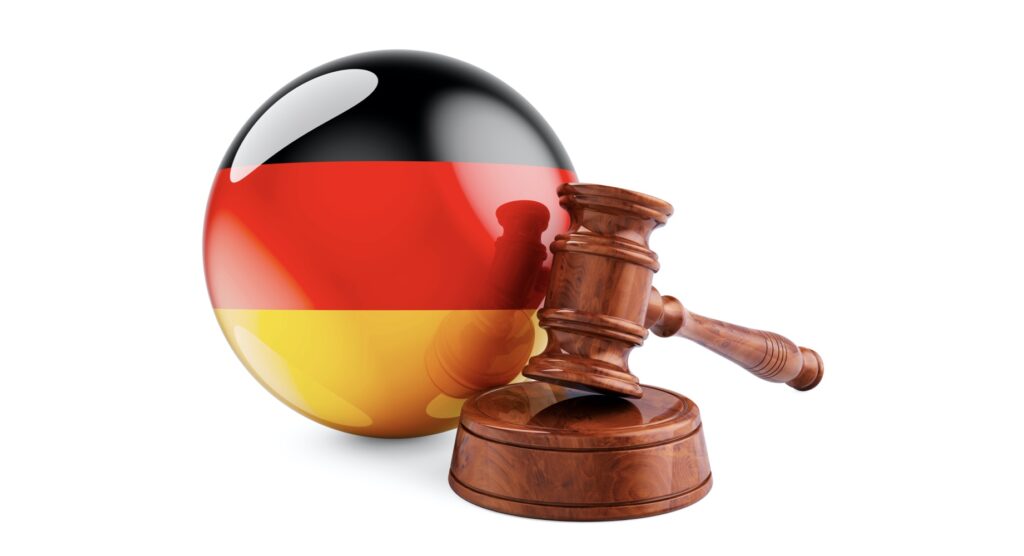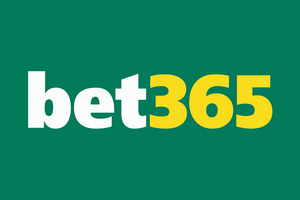German Betting Sites 2025
Lesen Sie diese Seite in Deutsch
With a history of success in a vast array of sporting disciplines, it makes sense for Germans to have an active interest in gambling. But what are the best German betting sites? Where can German punters get the most value?
We have studied the German betting market and have the latest news, banking advice and of course the best betting sites in Germany.

Best Online Bookmakers in Germany – July 2025
Average Payout Speed
0 – 24 HoursCurrencies
- USDT
- ETH
- DOGE
- Crypto-friendly sportsbook interface
- Daily live betting with cash out
- Niche sports like skiing & darts
- Multi-language site & localisation
- Tiered rewards for loyal players
Average Payout Speed
0 – 24 HoursCurrencies
- NOK
- HUF
- PLN
- Huge focus on football betting
- Access thousands of markets per event
- Detailed live betting with in-game graphics
- Get extra bonuses via weekly challenges
- Unlock key perks in the VIP scheme
Average Payout Speed
0 – 24 HoursCurrencies
- CAD
- Frequent promos and boosted odds
- Live streams on football, esports and more
- Crisp, clean, bright layout
- Simple ‘Challenges’ to unlock goodies
- Top-tier customer support and live chat
Average Payout Speed
0 – 24 HoursCurrencies
- Get big cash prizes as a VIP customer
- Access the site in 17 languages
- Live odds change via colour-coded boxes
- Explore in-depth sports rules on the site
- No live streaming service
- Long list of restricted countries
Average Payout Speed
0 – 24 HoursCurrencies
- BRL
- CAD
- NOK
- Try a multi-match acca with ‘Event Builder’
- Benefit from multi-language support
- Enjoy low or no wagering on bonuses
- Watch live streams of selected sports
- Contact team through X, Insta and more

Bonuses at German Betting Sites
Most German bookmakers offer sign-up bonuses and ongoing promotions to customers in order to attract punters and keep them coming back. Some of the best betting sites available to German residents are listed above and each of those will offers a welcome bonus to new customers.
Our team has tested out lots of different offers from different online betting sites, but the list we have created above has the best of the bunch. These free bets are always worth taking advantage of, so check them out now.
Payment and Banking for German Punters
For the websites which were licenced by Schleswig-Holstein, there is little cause for concern for customers, as everything is ‘legitimate’ and lawful. A range of Visas debit and credit cards , as well as Mastercard can be used.
Although there is no evidence of prosecution by German authorities on those using unlicensed websites, some German punters prefer to err on the side of caution and use an online e-wallet. There are a dearth of providers of these payment services, with many being founded in Germany. They include:
PayPal
PayPal
PayPal is an industry leader when it comes to online payment processing and is well loved in Germany. The company’s excellent reputation for safety and security will allow you to relax and enjoy your sports betting experience. PayPal is also a great choice if you have multiple betting accounts or want to exchange between different currencies.
ClickandBuy
ClickandBuy
Originally launched in 2000 from Cologne, the company has since relocated headquarters to London, after the German gambling laws gave the owner cause for concern. Clickandbuy can be used on over 770 gambling sites worldwide, including big names such as Ladbrokes, 888Sport, and William Hill.
CLICK2Pay
CLICK2Pay
A Munich based firm with 888 websites to choose from. Their wallet can be used on sites such as William Hill, Betway and Pokerstars.
E-Wallets
E-Wallets
Major international e-wallets such as Neteller and Skrill can also give German citizens the anonymity they desire when betting online at German betting sites.

Germany’s Stance On Gambling
Gambling has long been intertwined into German culture. The territory of Baden boasts claim to be the home of the world’s first legal casino, opened all the way back in 1765. Recent years have seen a restrictive government policy towards gambling, with extremely controlling legislation in place.
Opposition from the EU and betting firms has been supported in the court of law, but the current climate is still somewhat cloudy. At the start of 2008, the ‘Interstate Treaty on Gambling’ was implemented by 15 of the 16 German states. This treaty was initially meant to have a four-year lifespan (it actually ended up lasting four and a half years), before being reviewed.
The crux of the legislation was a complete prohibition of online gambling for German citizens, apart from horse racing. The treaty extended internationally, with foreign bookmakers who provided their services, or promoted their products to Germans, facing sanctions. The law gave permission for ISP’s to block access to online casinos and other gambling portals and made it illegal for German banks to accept transactions from betting sites.
Naturally, with ten percent of all online gamblers around the world being German, these restrictive laws were met with disdain from much of the population, with few taking notice. Despite the threat of legal action, the German government had no jurisdiction other countries and therefore foreign bookmakers tried to capitalise on the German citizens’ thirst for a bet.
Private enterprises were able to apply for sports betting and lottery licences and the companies were also able to apply for a licence to operate online. The number of licenses was initially limited to twenty, with a 5% tax imposed on stakes. Online casinos games remained illegal under the revised act.
Despite the more liberal sports betting regulations, common consensus was that the German authorities were protecting their state-owned betting model and making it extremely difficult for foreign companies to obtain a licence. By 2016, the Court of Justice of the European Union declared the treaty of 2012 in violation of EU laws and principles for the free movement of services within the Union.
A new Treaty was approved by Germany’s 16 states in March 2017, which increased the number of available licenses from twenty to forty. However, this new treaty also came under fire as it merely increased the number of licenses without fully opening up the German online gambling market.
More recently, the German online slots market was shocked by the news that major slot providers Novomatic and Merkurs restricted their games in the country. The suspected reason behind these withdrawals was due to potential legal implications from either Germany or the EU. However, there is no sign of sports betting taking a step backwards or facing legal sanctions in Germany.

Can I Bet Online in Germany?
In a word, yes. With such an active betting population and the underlying support of the EU, unlicensed bookmakers are paying scant regard to German laws and regulations. Along with bookmakers, poker and casino revenues are also a significant income generator and are offered by major European firms.
- Fully licensed and certified by independent regulators.
- Approved for secure financial transactions and data protection.
- Reputation for dealing with complaints quickly and fairly.

Tax on Winnings at German Betting Sites
Since 2012, all sports betting in Germany has been subject to a 5% tax on stakes. This tax is applicable to all residents of Germany and anyone placing a bet within Germany. This move appeared further evidence of the German authorities’ attempts to deter people from gambling online. Having 5% of the betting stake deducted is certainly a negative and makes turning a profit a much stiffer task.
German bookmakers have responded in different ways to the tax; Bwin have decided to absorb the tax themselves, thus allowing customers to bet normally. This has impacted on profit per bet but has kept the popularity of the site high. Other firms such as Ladbrokes have taken the approach to only tax winning bets, with the companies covering the tax on losers, whilst Stan James do not tax German players at all – they do not hold any license in Germany.
Germany’s Favourite Sports
Germany has an incredibly rich sporting history, with football and horse racing being the two most popular sports for betting in the country. Bayern Munich are one of the world’s premier football teams, and there is significant betting interest from Germany punters in both the Bundesliga and other elite leagues in Europe.
The German Derby at Hamburg attracts top class equine fields on a yearly basis. Other popular sports for betting include:
The Deutsche Eishockey Liga is one of the premier ice hockey leagues outside of North America, boasting the highest number of overseas Canadian and US players.
With average crowds of 4,300, the Basketball Bundesliga (BBL) is also gaining in popularity and is contested by 18 teams from across Germany. Handball has gained more exposure in recent years in Germany and was first contested at the 1936 Olympics in Berlin.

German Betting Sites – Our Verdict
With a population of over 80 million and a passion for gambling, the German sports betting market is an attractive one. Unperturbed by the protectionist policies and attitudes adopted by the German authorities, European firms have made it extremely easy for German citizens to strike a bet, be it on Sports, Poker or in the Casino.
With increasing pressure from the European Union for Germany to adopt a fairer approach to licencing, and the likely realisation by the policy makers that by allowing more businesses to operate in their country, tax revenue can increase, the future looks bright.











